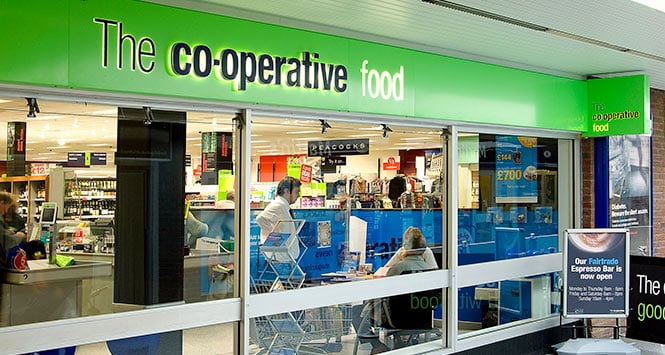
A major supermarket chain faces a legal challenge over its use of biometric technology to cut crime.
Pressure group Big Brother Watch (BBW) has filed a legal complaint with the government’s Information Commissioner claiming Southern Co-operative’s use of live facial recognition cameras to create a blacklist of unwelcome customers in its stores is “unlawful”.
The action, sent via the group’s lawyers from data rights firm AWO, claims the use of the biometric cameras “is infringing the data rights of a significant number of UK data subjects”.
BBW says how the system, sold by surveillance firm Facewatch, “uses novel technology and highly invasive processing of personal data, creating a biometric profile of every visitor to stores where its cameras are installed.”
The supermarket chain has installed the controversial surveillance technology in 35 stores across Portsmouth, Bournemouth, Bristol, Brighton and Hove, Chichester, Southampton, and London.
The supermarket’s staff can add individuals to the facial recognition “blacklist”, making them a “subject of interest”. Shoppers are not informed if their facial biometric data, similar to the data held on modern passports, is stored or added to the supermarket’s blacklist where it is kept for up to two years.
According to the Southern Co-operative, staff do not receive photos from or give photos to the police, but rather use the biometric profiles to create an alert if certain shoppers enter the store.
Information is then and to share allegations of unwanted conduct between staff in different stores.
BBW says shoppers whose images are not on any watchlist may be kept for days for Facewatch to “improve its system”, according to Facewatch documents analysed in the complaint.
BBW Director Silkie Carlo said: “Our legal complaint to the Information Commissioner is a vital step towards protecting the privacy rights of thousands of people who are affected by this dangerously intrusive, privatised spying.
“The Southern Co-op’s use of live facial recognition surveillance is Orwellian in the extreme, highly likely to be unlawful, and must be immediately stopped by the Information Commissioner.
“The supermarket is adding customers to secret watchlists with no due process, meaning shoppers can be spied on, blacklisted across multiple stores, and denied food shopping despite being entirely innocent. This would sound extreme even in an episode of Black Mirror, and yet it is taking place right now in Britain.
Go to http://bigbrotherwatch.org.uk
“This is a deeply unethical and frankly chilling way for any business to behave and I’d strongly recommend that people do not shop at the Southern Co-op whilst they continue to spy on their shoppers.”
The complaint says: “It does not bring serious criminals to justice… it does not protect the public from harm in any meaningful way.
“At best, it displaces crime, empowering individual businesses to keep ‘undesirables’ out of their stores and move them elsewhere.”
Alex Lawrence-Archer, Solicitor at data rights agency AWO said: “Our legal analysis shows there are good reasons to believe that Facewatch and Southern Co-op’s implementation of live facial recognition technology is in breach of data protection legislation. And it could be causing serious harm to people on their ‘watchlists’.
“This kind of high-risk, biometric processing needs a strong justification, and it’s not at all clear that Facewatch and Southern Co-op meet that test.
“We also highlight significant risks of unfair bias and inaccuracy in the implementation of the system, both of which further suggest that it is unlawful.
“Our data rights can give us a say in whether and how companies can use technology to exercise power over us, but only if they are enforced. That is why it’s urgent that the ICO investigates this system.”
Southern Co-Op told the BBC it welcomes “constructive feedback” from the Information Commissioner.
A statement said: “We take our responsibilities around the use of facial recognition extremely seriously and work hard to balance our customers’ rights with the need to protect our colleagues and customers from unacceptable violence and abuse.
“The safety of our colleagues and customers is paramount and this technology has made a significant difference to this, in the limited number of high-risk locations where it is being used.
“Signage is on display in the relevant stores. As long as it continues to prevent violent attacks, then we believe its use is justified.”
Prof Fraser Sampson, Commissioner for the Retention and Use of Biometric Material and Surveillance Camera Commissioner, said: “The issue throws up some interesting points but, in general terms, the use of that technology in the retail environment is very different to that in use in policing and law enforcement.
“It’s a contractual relationship between the customer and the shop’s owner but it does throw up a question of where privacy sits in this.”
Prof Sampson’s remit covers the public sector and law enforcement, not private security.